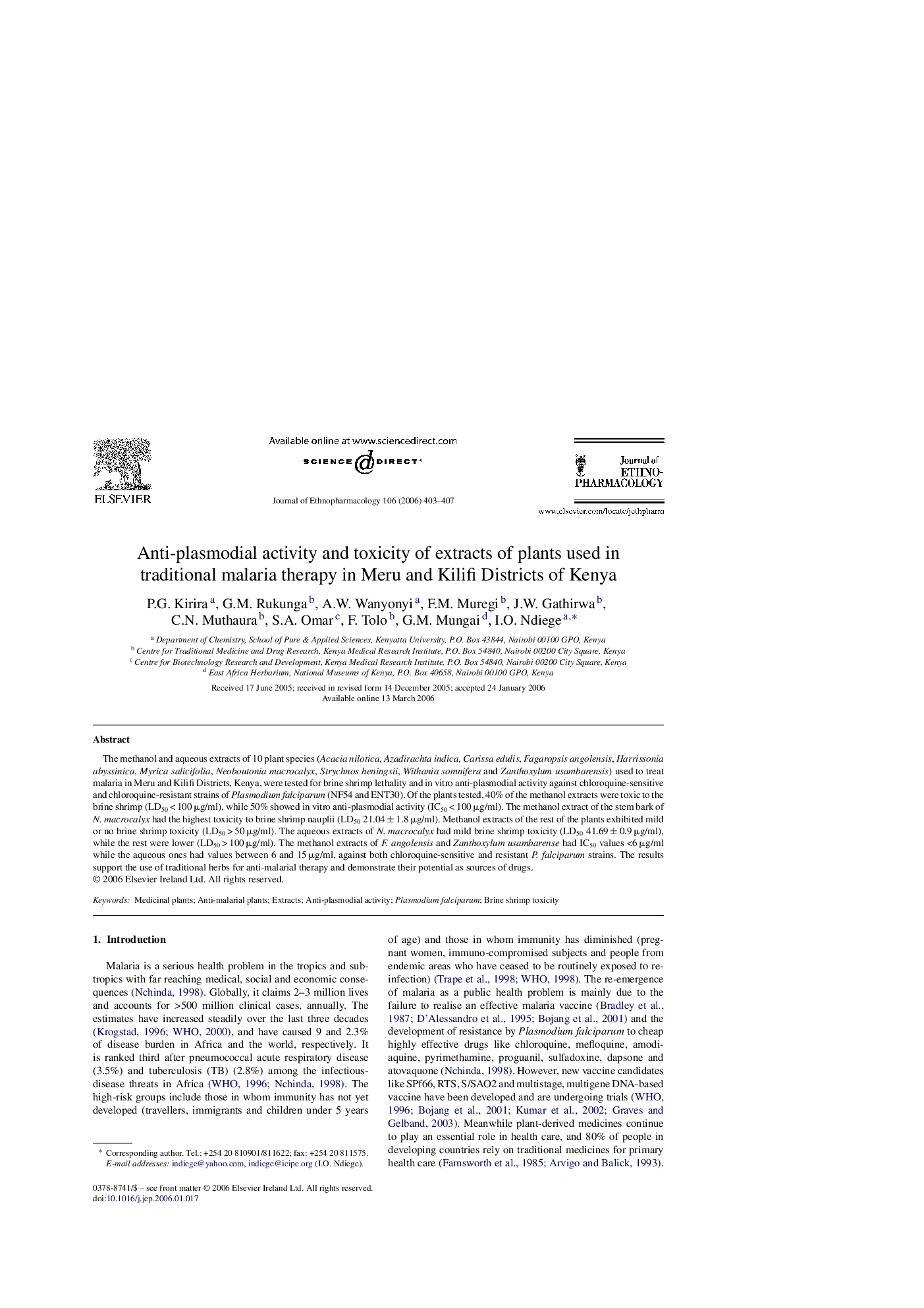| Article ID | Journal | Published Year | Pages | File Type |
|---|---|---|---|---|
| 2548256 | Journal of Ethnopharmacology | 2006 | 5 Pages |
The methanol and aqueous extracts of 10 plant species (Acacia nilotica, Azadirachta indica, Carissa edulis, Fagaropsis angolensis, Harrissonia abyssinica, Myrica salicifolia, Neoboutonia macrocalyx, Strychnos heningsii, Withania somnifera and Zanthoxylum usambarensis) used to treat malaria in Meru and Kilifi Districts, Kenya, were tested for brine shrimp lethality and in vitro anti-plasmodial activity against chloroquine-sensitive and chloroquine-resistant strains of Plasmodium falciparum (NF54 and ENT30). Of the plants tested, 40% of the methanol extracts were toxic to the brine shrimp (LD50 < 100 μg/ml), while 50% showed in vitro anti-plasmodial activity (IC50 < 100 μg/ml). The methanol extract of the stem bark of N. macrocalyx had the highest toxicity to brine shrimp nauplii (LD50 21.04 ± 1.8 μg/ml). Methanol extracts of the rest of the plants exhibited mild or no brine shrimp toxicity (LD50 > 50 μg/ml). The aqueous extracts of N. macrocalyx had mild brine shrimp toxicity (LD50 41.69 ± 0.9 μg/ml), while the rest were lower (LD50 > 100 μg/ml). The methanol extracts of F. angolensis and Zanthoxylum usambarense had IC50 values <6 μg/ml while the aqueous ones had values between 6 and 15 μg/ml, against both chloroquine-sensitive and resistant P. falciparum strains. The results support the use of traditional herbs for anti-malarial therapy and demonstrate their potential as sources of drugs.
